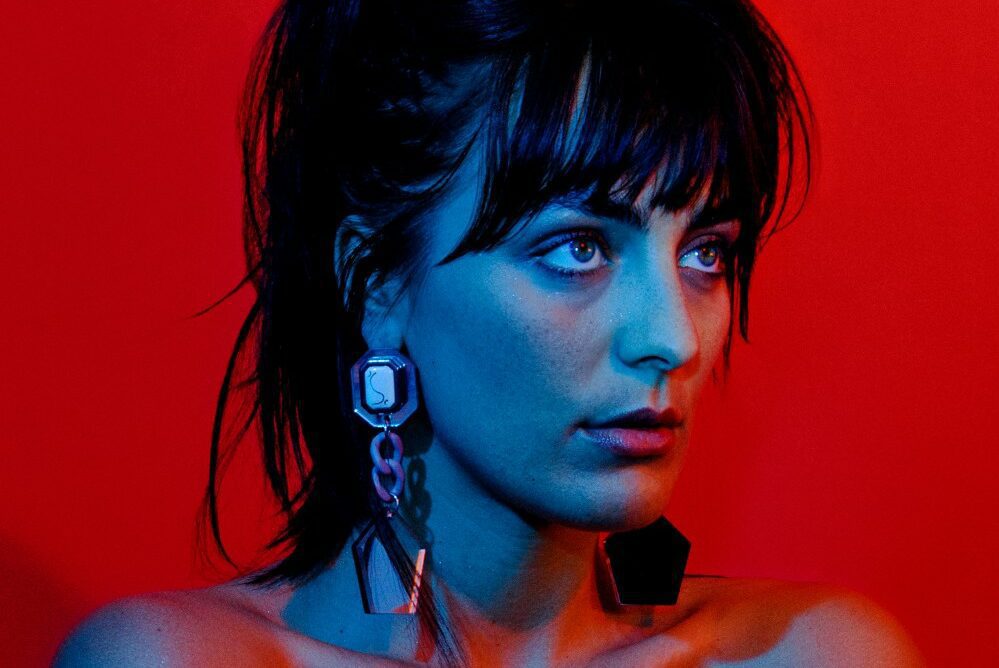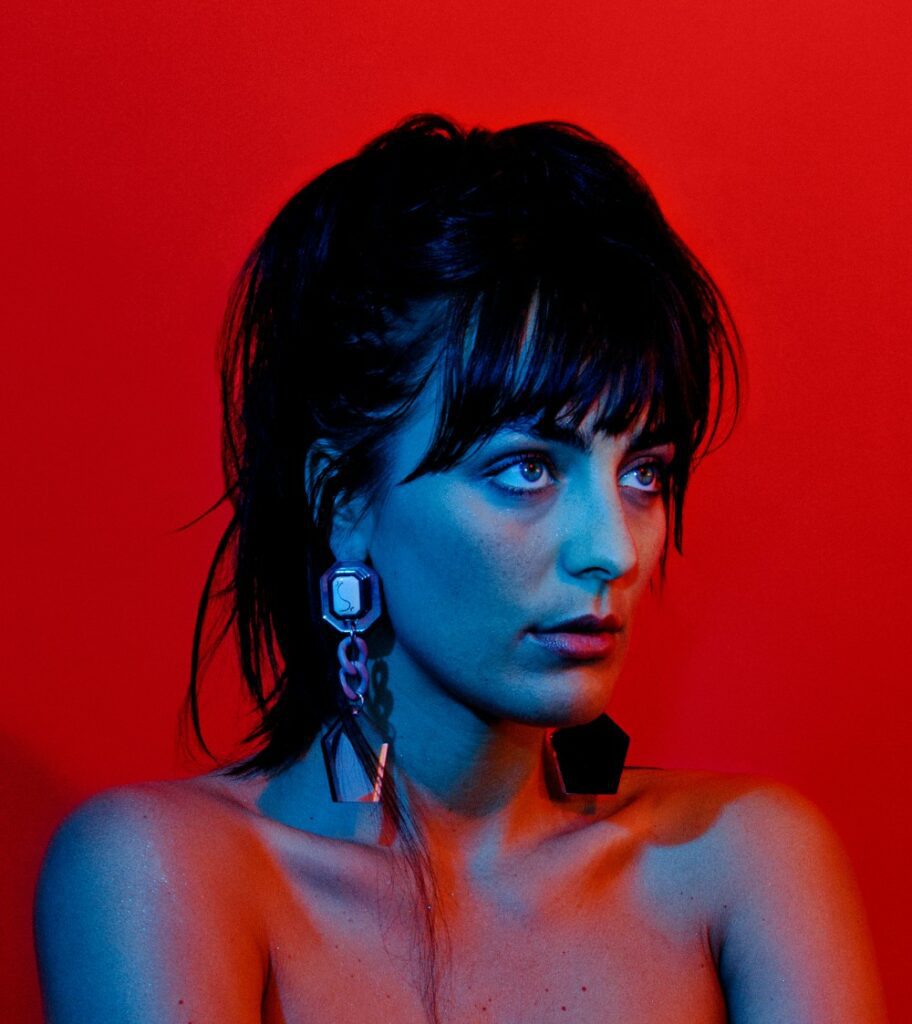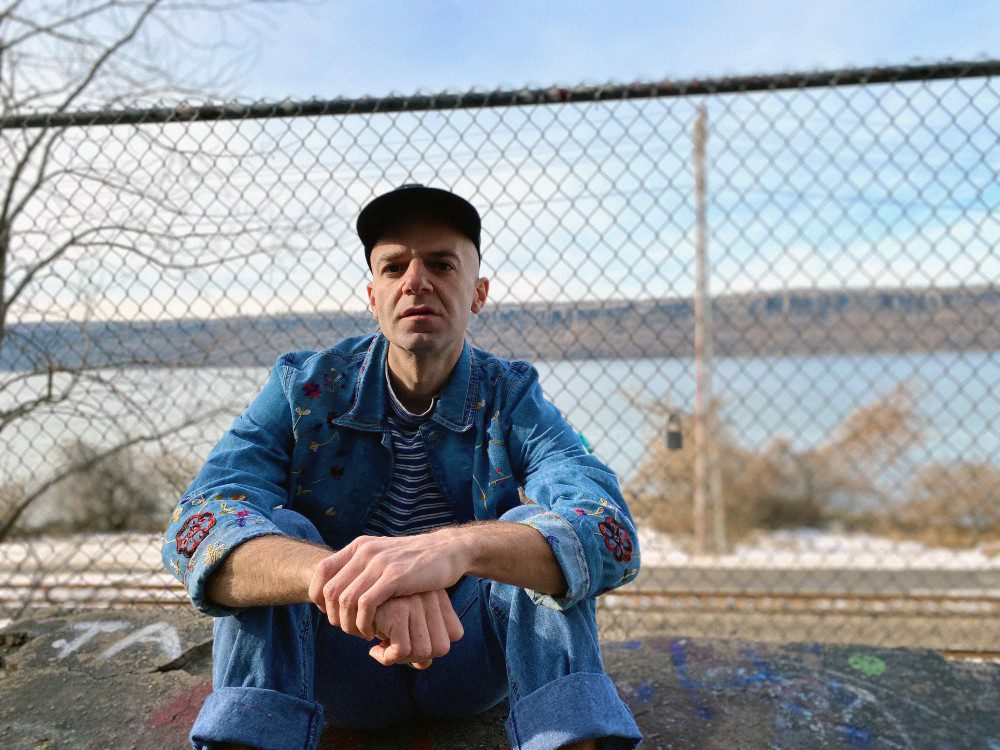

As a pioneer in New York City’s DIY all-ages scene over the past decade, alongside his brothers in the The So So Glos, Alex Zarou Levine – better known by his solo moniker Alex Orange Drink – represents a millennial shift in pop punk. Today’s punks hold space for complexity, they go to therapy, and they unabashedly share their souls with the intention of healing, ushering a new era of emotional maturity for the genre at large. Once, at a Desaparecidos show, Conor Oberst’s nephew told Alex that he seemed to be aging backwards, with the spontaneity and direct nature of a little boy, and the compassion and wisdom of an old man. The observation struck a chord, and feels even truer listening to his recent work.
After releasing his debut solo LP Babel On in 2018, Alex Orange Drink returns with his most intimate musical project to date, Everything Is Broken Maybe That’s Ok. A powerful autobiographical body of work, he throws shade to stereotypical white men whining about high school (of course there’s a sprinkle of flat rim caps, Dickies, and wallet chains) that characterized late ’90s and early aughts pop punk. Instead, Alex Orange Drink candidly explores his experiences with love and loss, getting arrested, and his life-threatening battle with rare genetic disorder Homocystinuria. Tapping into narratives of broken political systems woven together with universal themes of heartbreak, the record stays true to his never-ending teenage angst. Released digitally in July, pre-orders for vinyl will ship this month via Freeman Street Records.
“Half of the album was recorded before the pandemic in a party-like atmosphere – with basic tracking captured live among friends, family and lovers – while the other half was completed by a heartbroken protagonist reflecting in isolation,” Alex tells Audiofemme over a long, impromptu car ride to the beach in rush hour traffic. As we inched through Bay Ridge – the infamous setting of Saturday Night Fever, and also the neighborhood where Alex grew up – he broke the album down song by song to offer a window into its unique and autobiographical depth.
“Brooklyn Central Booking”
“[I’ve been arrested] three times. This song is a combination of all of them. I had an outstanding warrant for pissing in the street. One time we got arrested as a full band, coming from our practice space and smoking a joint. Everyone made it through the system and got out except me. After 15 hours I was tripping out from not having my orange drink (which I drink for my Homocystinuria). I was malnourished and going crazy. They say if you have diabetes or any kind of genetic disease, you’re supposed to tell them. But they just take you to the hospital, then it takes 20 hours before you go back to the jail. I was trying to get a glass of water but they wouldn’t let me. They took me out of the first cell, which is the worst one – and called my name. One cop was standing on one side of the hallway and the other was standing on the other. The cop on the other side said, ‘Did I tell you to move?’ I sat down on the floor, then a cop threw me against the wall by my head and threw my file at the bottom of the pile. I was there for two days in the first cell. Two days without my orange drink.”
“Homocystinuria Pt. 1 (1987-1994)”
“Homocystinyria is a super rare genetic disease that I was born with, and it’s pretty life threatening if it’s uncontrolled. Luckily I’ve been controlled since birth. It’s an extremely restrictive diet where I can’t break down protein. It’s this medicine I have to take with all of the amino acids, with the one I can’t have taken out. It’s like my rapper name that’s like my super power. The song is about growing up with that, and feeling really isolated and alone because I didn’t know anyone else who really had it or was living with it. The song is about bringing my music friends to the hospital for my check ups – I list all of the artists I listened to that got me through it. I wasn’t affected yet so much but I was clinging to music and making it a survival instinct. Later I realized it was anxiety. You don’t know what anxiety is when you’re a kid. You grow up and begin to realize what it is. I had a lot of panic attacks in my teenage years. The mental things that come with having a restrictive diet, the psychological effects of that are interesting – it’s what makes me an artist. Part of it is very physical. You feel like you’re dying and you attribute it to physical things. Racing thoughts – it’s very crazy real anxiety in your head. I felt uniquely crazy. I kept it very private until this project. I very consciously didn’t think about it.”
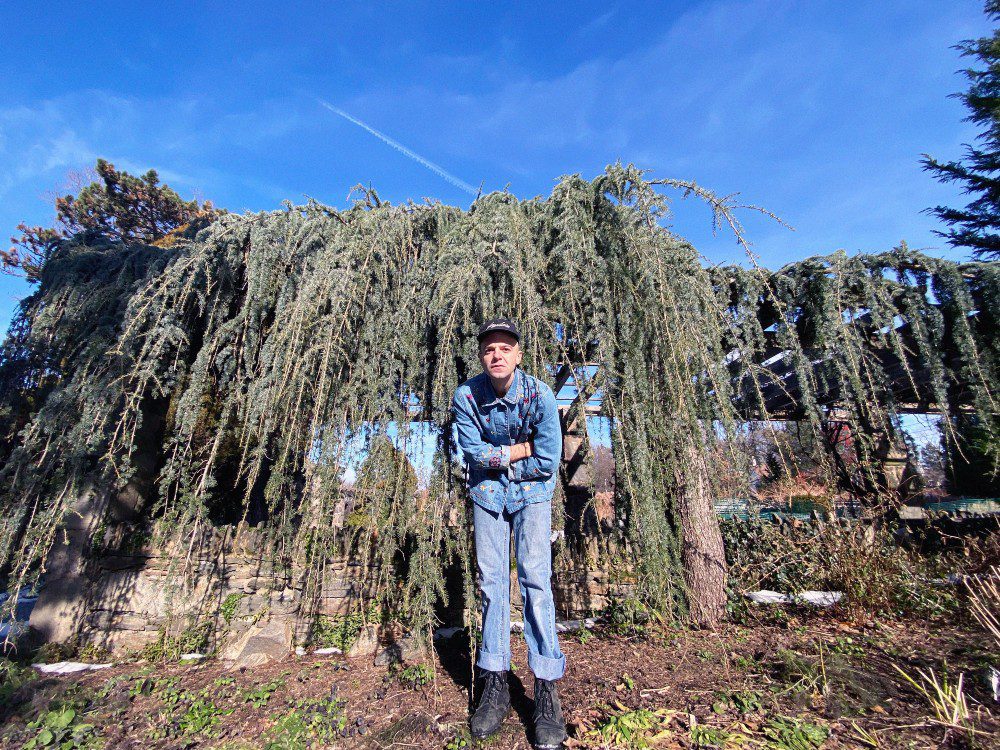
“Oxytocin (Love Buzz)”
“The song was inspired by extreme and perpetual heartbreak. The feeling of someone falling out of love, and looking to science to try to understand something emotional. I did a lot of research on limerence and oxytocin. The world shows you Disney love, but not five years later when it gets hard. That’s what this song is about. Wanting to believe that there is a magic thing that is love, that it’s not just some kind of scientific chemical to procreate. It’s a hopelessly romantic song at the same time, like you’re addicted to desperation.”
“How High?”
“This song is about the urgency and desperation of feeling powerless at 3AM. The only thing you can do is run away and disappear. The first line is ‘Julia’s hanging in the corner,’ and that’s a real person. She was 99 years old. She’s just a really special person and I always wanted to put her in a song. She’s the oldest person I’ve met in New York. She was telling me about the elevated 2nd Avenue line in Manhattan. I met her when I was doing construction at a pizza place. This song is about that feeling of knowing I’ll do whatever you want; when you fall into love like that you lose power. It becomes a struggle. I think you can lose yourself very easily and it’s scary. It’s complicated. Fiona Apple and Bob Dylan are really good at giving the 12-sided die to relationships. I love to write about multiple interpretations of a relationship. I’m obsessed with double meanings, double entendre rooted into really deep emotion.”
“It’s Only Drugz (Limerence)”
“I’m just playing an acoustic guitar on this one, and Adam [Reich] did the string arrangement. He’s also playing bass, and Johnny [Spencer] is playing drums. Adam and I went in a year and a half later after we finished this track and went crazy with overdubs. I was in a heartbroken state of mind when I recorded the vocals. Emmerson [Pierson] is singing vocals. She’s doing that little hook. Her music is really good. The song feels inspired by the Zombies or the Kinks. Maybe a little Serge Gainsbourg or Leonard Cohen. I didn’t really think about the influences consciously on any of them but it’s fun to analyze them now. If I had to say it, it has a psychedelic ’60s kind of crooner energy. It’s a similar concept to the ‘Oxytocin’ theme.”
“Click Bait, Click Me”
“It’s always a subject, internet obsession. I think the least about this song, but I think that it’s the feeling of voyeurism, watching someone behind a screen. It’s about the celebrated narcissism in our society. The feeling of being sold something that’s a lie, that’s empty, not fulfillment. The lab rat in the pellet experiment where they keep pressing the button and they just want more – I forget the name of the experiment. Instagram feeds off of our insecurities, and then if you add a human relationship to it, and all of the things that come with that, it’s like a love song through a screen, with the addictive thing of what you see in someone else, and what you see in yourself through someone else and how they see you. That sense of hyper voyeurism, like the film We Live in Public.“
“Homocystinuria Pt. 2 (1995-1999)”
“The sequel to ‘Homocystinuria Pt. 1,’ the infant stages of becoming a superhero. There’s this bully named AJ who’s bullying me, and the feeling of being a total outcast and growing into your teenage years. Feeling different from people, not totally connecting it and not understanding why. The feeling of being an outsider, and finding my way towards high-energy rock ‘n’ roll. That’s why it’s the most punk song. It’s a metaphor for the kind of punk I was listening to as a teenager. I still like that music. Part two is more suburban. My parents split up around that age, and my mom moved to the suburbs. It has the feeling of teenage angst, but it’s wordy, like hip hop. I think about it like a Biggie Smalls song – he’s just talking about himself in middle school, and the struggle. This is my rap song.”
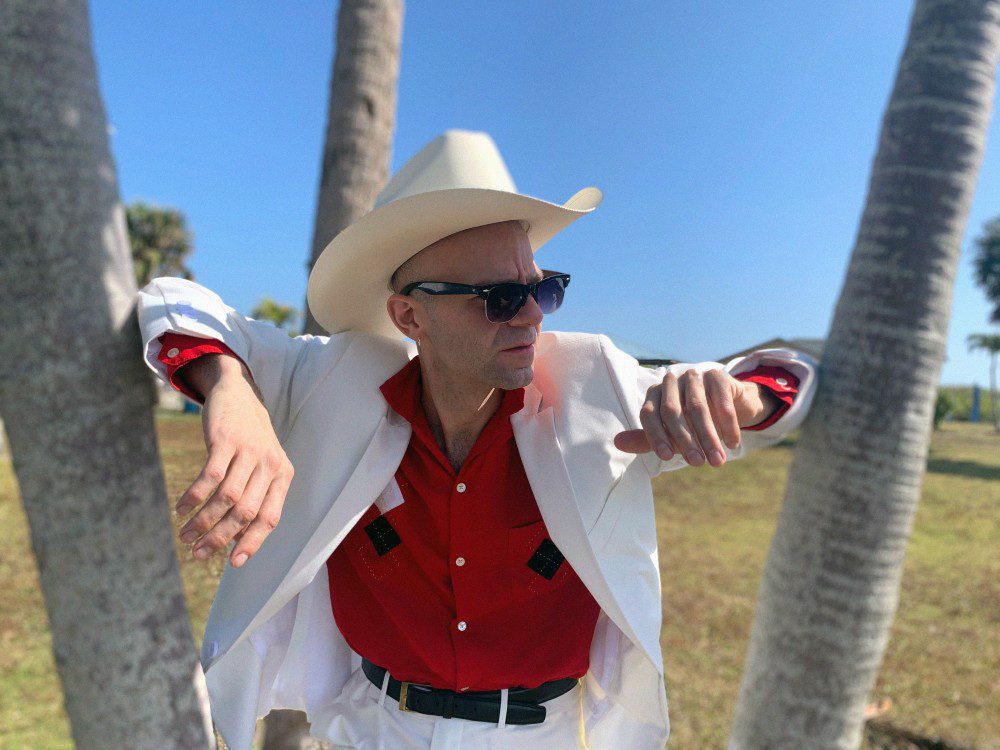
“I L.U.V.I.O.U.”
“It sounds happy, almost like an American Beatles circus. I tried to make it like a carousel. The protagonist is trying to be in love and have someone all the time. All I want is an i.o.u, you owe me! It’s the feeling of when you’re just looking for acknowledgement. It’s about unrequited love, and it’s the simplest song on the record.”
“Teenage Angst Forever”
“This wasn’t as much a personal song, but a story song. In one half of the song I’m a little boy and in the other I’m an old man. Shilpa Ray plays the harmonium on that and the mellotron. It’s a live recording, just me and acoustic guitar and then Shilpa doing her stuff. This is the only one that’s separately recorded. This was recorded during the blizzard the day before Christmas Eve. My parents get sad when they hear that, but I did have feelings like that [when they divorced]. Once you express them they’re not even about me, they’re about whoever hears them. Cystadane is a medicine I take for Homocystinuria, that’s my only “cysta.” We all have these dreams as a kid of a better utopian kind of place and we’re forced to think that ambition isn’t real. That cynicism that we’re supposed to grow up with and accept the racist sexist capitalist bullshit that makes us all pawns. It’s not teenage to say that, it’s just true. Teenagers can be brats and they don’t know everything about the world, but a lot of them know their truth and I was one of the kids who did. You don’t die at 27, you grow up and you’re a certain breed – teenage angst forever. I think a lot of people are like that.”
“Sun is Only Shining (Everything is Broken)”
“This song was written really organically with my friend Karla [Nath]. We have a really good energy together. We wrote it on a bench and then I went home and put the verse down really quickly. I knew it was going to be the name of the album when I was listening to my friend’s band Bueno – there’s a reference to a So So Glos song, and so it’s a reference to a reference. I thought it was a really cool concept and feeling for the record. The system that I knew was broken, my heart was broken, everything was broken. The broken glass from the protests in May. You saw the fabric of everything these last couple of years. Maybe that’s okay – we gotta smash everything and rebuild it better, to solve the problems. Or maybe we just leave it broken, I don’t know. It’s a dark statement and then a surrender to that. It’s acceptance. The album is like the seven stages of grief, and this is just acceptance. It goes through all of it. It’s denial, then anger comes in the middle, then sadness. This entire record is about loss and also about finding something. It’s a grand finale that the sun’s only shining on me even though everything is broken.”
Follow Alex Orange Drink on Facebook and Instagram for ongoing updates.

